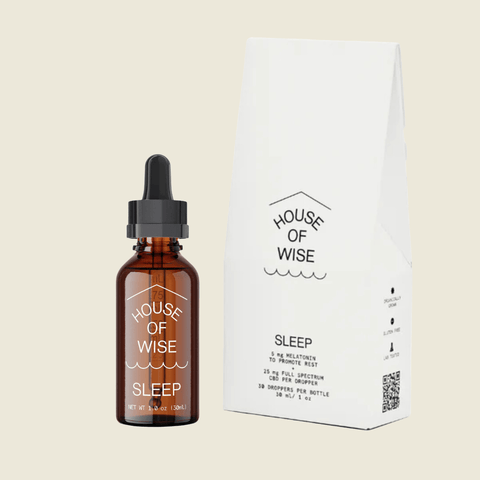Sleep Sex: Experts Guide
Discover expert advice on managing sleep sex, including tips on sleep hygiene, therapies, and supportive sleep products.
Understanding Sleep Sex: An Overview by Sleep Experts
Sleep sex, or sexsomnia, emerges as a bewildering phenomenon where individuals engage in sexual behaviors while in a state of unconsciousness during sleep.

This condition falls within the broad category of parasomnias, which includes activities that occur during sleep, such as Somnambulism (sleepwalking) and night terrors. Sleep experts aim to shed light on this complex condition, emphasizing its distinct nature from other sleep disorders due to its intimate and often distressing implications for those affected and their partners.
The exploration into the mechanics and triggers of sexsomnia is ongoing, with research delving into neurological, psychological, and environmental factors. Understanding the underpinnings of sleep sex is critical for developing effective treatments and support mechanisms.
As awareness grows, the stigma surrounding sexsomnia diminishes, encouraging individuals to seek help and advice from sleep specialists.
What Is Sleep Sex? Definitions from Sleep Researchers
Sexsomnia, a term coined by sleep researchers, describes a condition characterized by the initiation of sexual acts by an individual who is asleep. These acts can range from masturbation to intercourse, with the person having no memory of their actions upon awakening. This condition challenges our understanding of sleep behaviors, blurring the lines between consciousness and unconsciousness, and raises important questions about consent and responsibility.
Experts differentiate sexsomnia from conscious sexual desires and actions, noting that it often occurs during non-REM sleep stages. The classification of sexsomnia as a sleep disorder rather than a sexual disorder is crucial in guiding the approach to treatment and support, focusing on the neurological aspects of sleep rather than the sexual behaviors themselves.
The Science Behind Sleeping Sex: What Experts Say
The science behind sleeping sex delves into the neural and physiological aspects, exploring how the brain navigates the complex landscape of sleep stages. During these stages, particularly non-REM sleep, the brain's executive control diminishes, potentially leading to involuntary behaviors, including sexsomnia.
Experts in sleep research are piecing together how disruptions in normal sleep architecture can precipitate such behaviors, investigating factors like stress, substance use, and existing sleep disorders.
Understanding the triggers and mechanisms of sexsomnia is not only fascinating from a scientific standpoint but also critical for identifying potential interventions. Treatment strategies often involve addressing the root causes, such as improving sleep hygiene, managing stress, and, in some cases, pharmacological interventions. The goal is to restore normal sleep patterns and reduce the likelihood of episodes, providing relief and support to those affected.
Causes and Triggers of Sleeping Sex: Expert Insights
- Stress and anxiety: High levels of stress can disrupt sleep patterns, potentially triggering episodes of sexsomnia.
- Sleep deprivation: Lack of adequate sleep can lead to a higher susceptibility to various sleep disorders, including sexsomnia.
- Substance use: Alcohol and certain medications can increase the risk of experiencing parasomnias.
- Existing sleep disorders: Conditions like sleep apnea and restless leg syndrome may be linked to an increased incidence of sexsomnia.
- Neurological conditions: Some neurological disorders can alter sleep architecture, making episodes more likely.
- Environmental factors: Disturbances in the sleeping environment may trigger episodes in predisposed individuals.
Exploring the causes and triggers of sleeping sex offers valuable insights into prevention and management strategies. Sleep experts stress the importance of a holistic approach, addressing not only the symptoms but also the underlying causes.
Lifestyle modifications, such as reducing alcohol consumption and improving sleep hygiene, are often recommended alongside therapeutic interventions to mitigate the impact of these triggers.
How to Identify Sleep Sex: Insights from Sleep Experts
Identifying sleep sex involves observing specific symptoms and behaviors that occur during sleep. Individuals may engage in sexual activities, such as fondling, masturbation, or initiating intercourse, while remaining fully asleep. These episodes are often reported by partners or deduced from physical evidence or memory gaps regarding nocturnal activities. Sleep experts emphasize the importance of distinguishing these activities from conscious behaviors, as the individual has no awareness or control over their actions during these episodes.
Consultation with a sleep specialist is crucial for a definitive diagnosis. This typically involves a detailed medical history, sleep diary, and possibly a polysomnography (sleep study) to monitor sleep behaviors and brain activity. The goal is to rule out other sleep disorders and confirm the presence of sexsomnia. Recognizing the signs and seeking professional advice are the first steps towards understanding and managing this condition.
Diagnosis of Sleep Sex: A Guide by Sleep Experts
The diagnosis of sleep sex is a meticulous process that begins with a thorough evaluation of the individual's sleep and medical history. This includes assessing symptoms, frequency of episodes, and any potential triggers or contributing factors. A sleep specialist may also inquire about lifestyle habits, stress levels, and use of substances that could impact sleep patterns.
Following the initial assessment, a polysomnography test may be conducted. This overnight sleep study meticulously records the brain waves, oxygen levels, heart rate, and body movements during sleep. The data collected helps specialists in pinpointing abnormalities in sleep architecture that could indicate the occurrence of sexsomnia. The diagnostic process is both sensitive and complex, requiring expertise and understanding to navigate the challenges associated with this condition.
Managing Sleep Sex: Practical Advice from Sleep Specialists
Management of sleep sex involves a multifaceted approach, tailored to the individual's specific situation and the severity of their condition. Sleep specialists often recommend improving sleep hygiene as a foundational strategy.
This includes maintaining a consistent sleep schedule, creating a comfortable and safe sleep environment, and avoiding stimulants before bedtime. In some cases, medication may be prescribed to regulate sleep cycles or address underlying disorders contributing to the episodes.
Behavioral therapies and counseling can also play a crucial role in managing the condition, particularly for addressing the emotional and psychological impacts on the individual and their partner. Open communication and education about the disorder are key components of a comprehensive management plan.

Support from professionals and support groups can provide valuable resources and coping strategies for those affected by sexsomnia. Moreover, learning how to combat insomnia is crucial for individuals dealing with sleep sex, as improving sleep quality can help manage episodes.
Treatment Options for Sleep Sex: Recommendations by Sleep Specialists
- Improve sleep hygiene: Establish a regular sleep routine, optimize the sleeping environment, and minimize sleep disruptions.
- Medication: In some cases, medications that influence sleep architecture or treat underlying conditions may be effective.
- Counseling and therapy: Psychological support for individuals and couples to navigate the impacts of sexsomnia.
- Lifestyle modifications: Reducing alcohol intake, managing stress, and avoiding sleep deprivation.
- Safety measures: Implementing safety precautions to prevent injury during episodes.
- Professional support: Regular follow-ups with sleep specialists to monitor progress and adjust treatments as necessary.
|
Treatment Option |
Description |
|
Sleep Hygiene |
Establish a consistent sleep routine, optimize the sleeping environment, and minimize disruptions. |
|
Medication |
Use medications to adjust sleep architecture or address underlying conditions. |
|
Counseling & Therapy |
Offer psychological support for individuals and couples dealing with sexsomnia. |
|
Lifestyle Modifications |
Reduce alcohol intake, manage stress, and avoid sleep deprivation. |
|
Safety Measures |
Implement precautions to prevent injury during episodes. |
|
Professional Support |
Ensure regular follow-ups with specialists to monitor and adjust treatment. |
The Psychological Aspects of Sleeping Sex: Expert Analysis
The psychological ramifications of sleep sex extend beyond the individuals directly experiencing the condition to impact partners and relationships. The involuntary nature of sexsomnia can lead to confusion, guilt, and anxiety for those who learn of their actions. Understanding that these behaviors occur without consciousness or intent is crucial for mitigating feelings of shame and fostering open dialogue between partners. Sleep experts highlight the importance of psychological support and counseling in addressing these complex emotional responses.
For partners of individuals with sexsomnia, the experience can be equally challenging, often evoking feelings of concern, violation, or mistrust. Counseling for couples can provide a safe space to explore these feelings, enhance understanding, and strengthen communication. Addressing the psychological aspects of sleep sex is a vital component of comprehensive care, emphasizing the need for empathy, support, and professional guidance in navigating this condition.
Utilizing Better Sleep Products for Managing Sleep Sex
In managing sleep sex, incorporating better sleep products like sleep gummies, sleep drops, and CBD sleep gummies can be a supportive strategy. These products aim to enhance sleep quality and establish stable sleep patterns, serving as complementary tools within a comprehensive treatment plan.
While not a cure for sexsomnia, they may aid in improving sleep hygiene, which is critical in the broader context of managing this condition. Consulting healthcare professionals before using these products ensures they align with individual health needs and treatment objectives.
How to Incorporate Better Sleep Products:
To incorporate better sleep products, consider following:
- Consult a Healthcare Professional: Before starting any new supplement or sleep aid, get advice to ensure compatibility with your health profile.
- Start with a Low Dose: Begin with the smallest recommended dose to assess your tolerance and response.
- Integrate into a Nightly Routine: Use sleep products as part of your regular bedtime routine for consistency.
- Monitor Sleep Patterns: Keep a sleep diary to observe any improvements or changes in your sleep quality.
- Combine with Good Sleep Hygiene: Ensure your sleeping environment is conducive to rest, maintain a consistent sleep schedule, and avoid stimulants before bedtime.
- Evaluate Effectiveness: Regularly assess how the sleep products are affecting your sleep quality and any symptoms of sleep sex.
- Adjust as Necessary: Based on your observations and in consultation with a healthcare provider, adjust the types or doses of sleep products used.
Legal and Ethical Considerations of Sleep Sex: Expert Perspectives
The legal and ethical dimensions of sleep sex introduce a complex layer of considerations that intersect with the medical understanding of the condition. Legally, cases involving sexsomnia raise questions about consent, accountability, and the capacity to make decisions while asleep.
Sleep experts, alongside legal professionals, grapple with these issues, striving to balance the rights and protections of all individuals involved. Ethical discussions often focus on the necessity of informed consent, the responsibilities of those diagnosed, and the societal implications of recognizing sleep disorders that involve involuntary behaviors.
In navigating these challenges, the establishment of clear guidelines and protocols for diagnosis, treatment, and legal proceedings is critical. Educating the legal system, healthcare providers, and the public about the nature of sexsomnia is essential for ensuring fair and compassionate treatment. As understanding of the condition evolves, so too will the legal and ethical
Frequently Asked Questions About Sleep Sex: Answered by Experts
Sleep sex raises numerous questions for those affected by it and their partners, leading to a need for clear, accessible information.

Here are some common FAQs addressed by sleep experts:
Q: What triggers sexsomnia episodes?
Various factors, including stress, sleep deprivation, and alcohol use, can trigger episodes.
Q: Can sleep sex be cured?
While there is no cure, management strategies can significantly reduce the frequency and intensity of episodes.
Q: Is sexsomnia a common condition?
It's relatively rare, but underreporting due to embarrassment or lack of awareness may skew perception.
Q: How does sexsomnia affect relationships?
Open communication and professional guidance are key to navigating the impacts on relationships.
Q: Can children experience sexsomnia?
It primarily affects adults, but cases in children have been reported and require sensitive handling.
Q: Is sexsomnia related to mental health issues?
While not directly caused by mental health issues, stress and psychological factors can contribute to episodes.
Future Research Directions in Sleep Sex Studies: Expert Opinions
The field of sleep sex research is ripe for exploration, with many avenues remaining uncharted. Future studies aim to deepen our understanding of the neurological underpinnings of sexsomnia, exploring how brain activity during sleep contributes to these involuntary behaviors.
Additionally, there is a pressing need to develop more nuanced diagnostic tools and treatment protocols, tailored to the unique characteristics of sexsomnia. Researchers are also interested in investigating the long-term effects of the condition on psychological well-being and relationship dynamics.
Collaborative research efforts between neurologists, psychologists, and sleep specialists are crucial for advancing our knowledge and improving outcomes for those affected. Emerging technologies in sleep science offer promising new methods for monitoring and analyzing sleep behavior, potentially leading to breakthroughs in treatment.
The integration of patient perspectives and experiences into research initiatives is also vital, ensuring that studies address the real-world complexities of living with sexsomnia.











Comments (0)
There are no comments for this article. Be the first one to leave a message!